- Home
- Rick Mofina
The Last Pursuit
The Last Pursuit Read online
THE LAST PURSUIT
A Short Story
RICK MOFINA
Copyright © 2010 & 2012 by Rick Mofina
This is a work of fiction. Names, characters, places and incidents either are the creation of the author’s imagination or are used fictitiously, and any resemblance to actual persons living or dead, business establishments, events or locales is entirely coincidental.
The Last Pursuit
Rick Mofina
Kindle Edition
Copyright © 2012 Rick Mofina
Copyright © 2010 Rick Mofina
ISBN 978-1-927114-32-2
e-Formatting provided by Carrick Publishing
This e-book is intended for your personal enjoyment only. This e-book may not be sold or given away to other people. If you’re reading this e-book and did not purchase it, or it was not purchased for your use only, then please return to Amazon.com and purchase your own copy. Thank you for respecting the hard work of this author.
INTRODUCTION
The story, “The Last Pursuit,” was selected by the Crime Writers' Association of the United Kingdom to appear in its anthology, Original Sins.
It is included in my e-anthology, Three to the Heart, my second small collection of short stories which is the follow up to my first anthology, Dangerous Women and Desperate Men.
I regard the stories collected in Three to the Heart to be among the best of my short crime fiction.
Rick Mofina
Rmofina @ gmail.com
THE LAST PURSUIT
by Rick Mofina
clinked in the Maximum Security Unit of Saskatchewan Penitentiary as eight men, four of them prison staff, approached the last cell at the end of the corridor, the one segregated from the rest of the population.
Inside on his cot, inmate Robert Lazarus Yacine, turned his attention from his worn paperback copy of Nietzsche’s, Beyond Good and Evil to consider the traces of cologne and cheap motel shampoo that had arrived outside his door.
“Time to go,” Powers, the deputy warden, said.
Yacine stood and slid his hands through the portal of his cell door. Cold steel tightened around his wrists and snapped.
“Step back, please,” Farrell, the youngest guard, said.
Keys jangled, metal clicked against metal and Yacine’s heavy cell door opened. He cooperated as a waist chain and leg irons were applied. Taking stock of the men, he knew Powers, Farrell and the other prison guards, but not the four strangers. One of them passed him a pen and held a clipboard, thick with forms before him.
“Your signature is required by the Xs on each record,” the stranger flipped crisp pages of official documents for Yacine to see.
Letterheads flashed by; the U.S. Attorney General, the U.S State Department, the FBI, the U.S. Marshals Service, Immigration, Royal Canadian Mounted Police, U.S. Homeland Security, Correctional Service Canada, the U.S. Justice Department and several other agencies.
It was awkward for him to sign, his cuffs and chains knocked against the clipboard. Chewing gum snapped as one of the new men eyeballed Yacine; six feet two inches, two hundred rock-hard bench-pressed pounds, laced with tattoos, all packaged in prison-issued green coveralls and sneakers.
The strangers wore jeans, khakis, button-down oxfords, polo shirts and windbreakers. The men were cold, grim, and all business as they assessed him amid the distant clang of steel doors and shouting inmates.
From Yacine’s quick read of names on some of the documents, he figured that two were RCMP Corporals, John Garrett and Terry Cox and the other two were Deputy U.S. Marshals, Arlo Phife, and Moss Johnston.
But Yacine didn’t know who was who.
“Washington DOC will provide you with toiletries, underwear and the like, when they process you at intake,” Powers said after witnessing Yacine’s signature.
“May I bring my book?”
“Personal or library property?” Powers asked.
“Personal.”
One of the strangers fanned the book’s pages, examined its spine and binding before concluding that it was a harmless paperback. Nothing concealed.
“Can I bring it?”
Powers threw Yacine’s request to the four strangers. It bounced among them until one of them nodded; an indication of who was in charge.
Yacine figured the one who’d nodded was in his mid-forties and sensed something curious; the stranger’s still face and dark, distant eyes gave him the aura of a haunted man.
Dark Eyes.
Yacine tucked his observations away.
After processing Yacine and signing him out, he was escorted from the Maximum Security Unit to the rear of the prison where a CSC van and two marked Chev Impalas from the RCMP’s Prince Albert Detachment waited within the high stone walls of the institution.
The men put Yacine in the van and helped him with his seatbelt. The gum snapper sat facing Yacine and never removed his eyes from him.
“Tell me,” the gum snapper leaned forward, invading Yacine’s space, “that time you shared a cell with Zukoff, that huge Russian, were you his bitch?”
One of the others turned away, smiling covertly.
Yacine stared at the gum snapper, his chains tingling softly as over and over he rotated his book in his hands without speaking.
Without blinking.
RCMP Corporal John Garrett, the one Yacine knew as Dark Eyes, was not part of the taunt.
Garrett didn’t go for that kind of crap. He looked out the van’s window as the small convoy left through the gate. Work had taken Garrett to this prison and others many times over the years. Ironic, he thought, while he was free to leave each prison, he’d never escape the one he’d built for himself.
“Billy, wake up! Daisy, wake up!”
Saskatchewan Penitentiary was a century old and sat on a twenty-eight-acre expanse of land at the western edge of Prince Albert, a city of some fifty thousand people, in the near middle of Saskatchewan, a province big enough to swallow several mid-western states. It marked the passage between the vast prairie and the northern boreal forest leading to the Northwest Territories and the Arctic. Or, Garrett thought, what some call “the end of the world.”
Twenty minutes after exiting the pen, the convoy came to Glass Field, the small airport that borders the North Saskatchewan River east of town. The three vehicles activated their emergency lights and moved toward a far hangar and a waiting plane: A small jet assigned by the Royal Canadian Mounted Police specifically for this high-security prisoner transfer.
Yacine’s escorts had radioed ahead so by the time the cars and van came to a halt, the two RCMP pilots had completed their pre-flight checks. Once all the men boarded, they started the engines and secured clearance. The plane roared down the runway and lifted off on its secret flight.
Destination: Seattle.
The ground dropped, the wheels came up with a hydraulic moan and thud as vast stretches of level land flowed below like an eternal patchwork quilt.
Yacine remained shackled, chained to his seat and peering out the window. One of the men sat directly behind him, one beside him, while Garrett and the gum-snapper faced him. None of Yacine’s escorts carried firearms.
Each was armed with a stun gun.
It didn’t take long to reach cruising altitude where Yacine passed much of his time reading.
Garrett continued studying Yacine’s file, even though he’d read it the previous night in his motel room because he had trouble sleeping. Too much was at stake with Yacine’s case. The stress brought on nightmares. The past tormented Garrett.
So he got up and went over it again.
And now, on the plane, Garrett read it again.
Robert Lazarus Yacine, FPS Number 050300D. NCIC Number: M-51428683J. A U.S. citizen
of Algerian descent, born in Ashland, Kentucky; ex-military, Special-Ops in Iraq, ex-mercenary in Africa, was serving time in Saskatchewan after shooting two armored car guards in a botched heist at Montreal-Mirabel International Airport about a year ago.
The guards survived.
Yacine had good lawyers. He got ten years.
But six months before the armored car hit in Canada, twelve people were shot, nine of them died, during a four-million dollar bank robbery in Seattle. The masked suspects used AKs and tear gas in the commando-style attack.
A shoe impression from a suspect, who’d stepped on a freshly mopped section of floor in the Seattle case, matched an impression collected five months earlier in a robbery-homicide of a restaurant in Washington, D.C.
In that case seven people were wounded, three died, one of them a CIA operative who oversaw the capture of key terror suspects around the world. But that fact was never released; the operative was identified in the press as a low-level analyst in the agency.
Behind the scenes, the CIA and FBI suspected the D.C. homicides were a cover for the CIA agent’s assassination; and that the Seattle heist was a fund-raising operation for Algerian terrorist groups with ties within the U.S.
No arrests had been made and it looked like the Seattle and D.C. incidents were on their way to becoming cold cases.
But in the Seattle homicides, a thread of evidence emerged from an eye-witness who’d glimpsed a unique spider tattoo, peeking from the gloved hand of the principal shooter. Seattle detectives obtained a detailed sketch and working with the FBI, checked it with tattoo artists, tattoo databases, jails and prisons across the U.S.
All efforts dead ended, as did several leads in other areas. As time passed, the tattoo aspect was also pursued by police in Canada and Europe. Last month, it yielded a match in Saskatchewan.
The witness’s sketch detailing a spider in flames on a web of lightning was identical to the spider Garrett now saw writhing on the back of Yacine’s right hand, as he turned the pages of his book.
Garrett went back to the file.
Upon discovering Yacine in a Canadian prison, the investigation secretly kicked into overdrive. Yacine was isolated from the rest of the prison population, under the ruse of a flu outbreak, while in the U.S., federal and state attorneys prepared charges in the Seattle case.
Of paramount importance, they needed the witness to physically and positively identify Yacine as the owner of the unique tattoo, to put him in the bank pulling the trigger.
It was the foundation of their case.
It took weeks of secret high level legal wrangling between justice officials in Canada and the U.S. before an agreement was reached for both countries to share intelligence files and secretly fly Yacine to Seattle where the witness could identify him.
But there was a problem. The witness might not survive long enough to ID Yacine. His health was deteriorating. He was near death.
Without the witness, the case would collapse. Moreover, Yacine had a strong appeal going on his Canadian conviction. He’d been succeeding at every stage and could win his freedom within months.
Then he’d vanish.
Garrett finished and closed the file folder. As time ticked by, the drone of the plane’s engines lulled Yacine to sleep.
Garrett could not rest. Too much was riding on this assignment. He turned to the window, struggling to understand why in recent weeks, his failings loomed as large as the clouds out there. No matter how hard he tried, he could never bury the images of the night his life changed.
He’d just made Corporal after six years on the job in south eastern Alberta. He was working nights, alone, when the call came from Trudy Dolan at Plumtree Ranch, near Medicine Hat. Hubby Lyle’s been drinking, shouting, says he won’t let Trudy leave with the kids. Lyle’s facing debts, they’re losing the ranch.
He’s suicidal. He’s got a rifle.
Garrett, the senior member, was posted to a small, understaffed detachment. One of his constables was sick and it was Garrett’s seventh straight night shift. He was exhausted and considered alerting an off-duty member for back-up and possibly ERT in Calgary but dismissed it.
That was his first mistake.
The complaint history of the Dolan place showed two previous calls in the last six months. In the first, Lyle Dolan had been drunk, and had shouted threats before passing out. Trudy cancelled the call. They’d checked on her welfare. Her eyes, red-rimmed, she said all was fine, Lyle was venting.
It was the same with the second call.
This time, as Garrett approached the house, his strategy was to try to talk Lyle down.
That was his second mistake.
Garrett arrived alone to an ominous scene. Lyle’s idling pick-up was T-boned behind Trudy’s Toyota. No one was in sight. Garrett got out and inspected the dent in the Toyota’s left rear quarter. It was fresh, as was the fractured glass on the driver’s side window.
Lyle must’ve stopped Trudy from fleeing.
The first bullet whizzed by Garrett’s ear before he heard the shot. The second bullet hit his mid-section like a sledgehammer -- they told him later his vest saved him. Garrett was exposed without cover as the third shot nicked his thigh before he drew his Smith & Wesson semi-automatic 9-mil and returned fire at Lyle who’d stood in his porch aiming to shoot again.
Garrett got off several rounds and Lyle went down. Adrenaline pumping, gun drawn, he approached Lyle, spread eagled on his side porch, in filthy unlaced work boots, jeans, grease-stained T-shirt and a frayed John Deere cap. Garrett neared his corpse, puzzled by the heap of colors under him, trying to determine what it might be then – Oh Jesus oh Christ! He saw a tiny hand and the awful truth screamed with such velocity he vomited.
Billy Dolan, aged five, his sister, Daisy, aged four, were also killed by Garrett’s rounds.
Garrett never saw them standing behind their father, blocked by the porch wall. Never saw them until now. Tiny eyes, frozen open, stared at the stars in the vast prairie sky. Their little bodies shook slightly, from the tugging by their three year-old sister, Lori.
“Billy, wake up! Daisy, wake up!”
Garrett fell to his knees over the children, his body shaking as he reached for his radio.
It happened in a heartbeat.
Trudy Dolan was already dead in the bedroom. Lyle had shot her and was midway through his suicide note on the back of the foreclosure letter when Garrett had arrived. Lyle’s note stated he would not harm Billy, Daisy and Lori, whom he wanted his sister to raise.
All the investigations, the inquiries, and analysis pointed to a justified shooting; calling it a tragic act of self-defense. Garrett was cleared.
Absolved.
But not from the guilt he would bear for the rest of his life.
He drank to drown the nightmares. In the worst ones, the Dolan children stood at the foot of his bed.
Can’t you see us?
A few months after the shootings, Garrett faced another tragedy. His wife Cathy miscarried with their first child and Garrett searched for a reason to keep living. He quit drinking and took up long-distance running, isolating himself for mile after mile into the night.
Would he ever escape his guilt?
Ultimately, Cathy divorced him.
“You have to forgive yourself, John.”
They never had children. Cathy was a teacher and married a school principal. They had two daughters. Sometimes Garrett called her, just to talk. She always listened.
Cathy was the only one who understood.
Most nights, when Garrett thought of her, happy with her beautiful daughters, he felt like a ghost haunting the life he should’ve had; the one that died that night near Medicine Hat.
With counselling and time, Garrett returned to work, but could never touch a gun again.
A sympathetic superintendent assigned him to escort duty and he lived a solitary life, tormented by second guesses and an aching to do one thing – anything – that would redeem him.
>
A few hours later, they landed at Great Falls International Airport in Montana.
Garrett and the Marshals talked to U.S. Customs and Border Protection, showing them documents for signing to clear entry.
Yacine was then allowed to use the plane’s cramped lavatory with the door open and one of the men watching him. Afterward, he was again secured to his seat. The others returned to the plane with ham and cheese sandwiches wrapped in plastic, chips and drinks in paper cups.

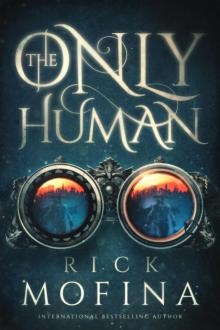 The Only Human
The Only Human Tom Reed Thriller Series
Tom Reed Thriller Series![[Tom Reed and Walt Sydowski 04.0] No Way Back Read online](http://i1.bookreadfree.com/05/tom_reed_and_walt_sydowski_04_0_no_way_back_preview.jpg) [Tom Reed and Walt Sydowski 04.0] No Way Back
[Tom Reed and Walt Sydowski 04.0] No Way Back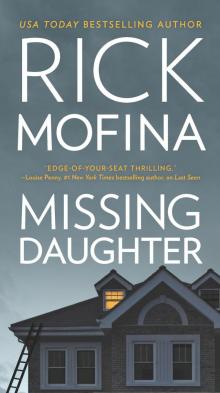 Missing Daughter
Missing Daughter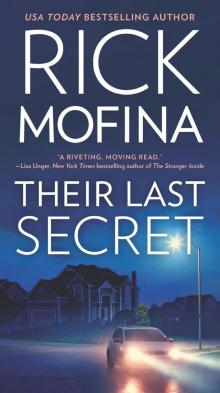 Their Last Secret
Their Last Secret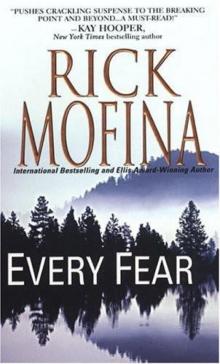 Jason Wade - 02 - Every Fear
Jason Wade - 02 - Every Fear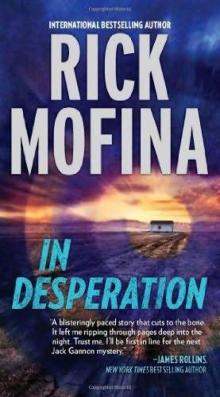 In Desperation
In Desperation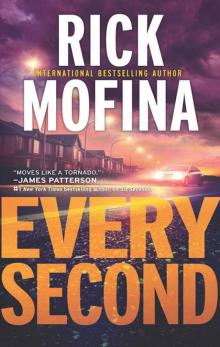 Every Second
Every Second Full Tilt
Full Tilt Search for Her
Search for Her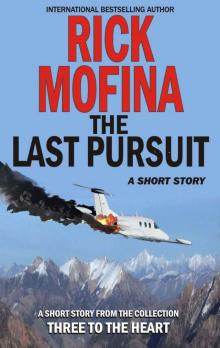 The Last Pursuit
The Last Pursuit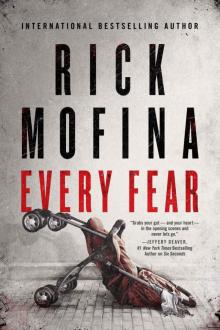 Every Fear
Every Fear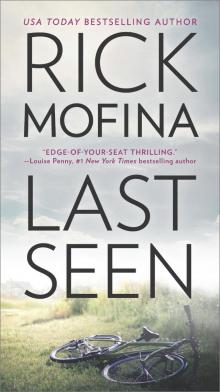 Last Seen
Last Seen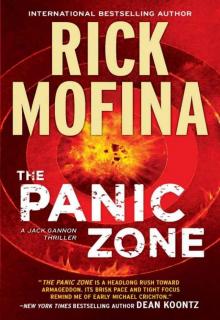 The Panic Zone
The Panic Zone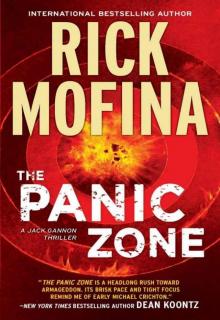 The Panic Zone jg-2
The Panic Zone jg-2 Free Fall
Free Fall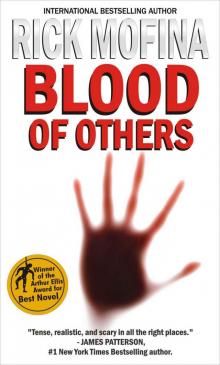 Blood of Others
Blood of Others![[Jason Wade 02.0] Every Fear Read online](http://i1.bookreadfree.com/i1/03/31/jason_wade_02_0_every_fear_preview.jpg) [Jason Wade 02.0] Every Fear
[Jason Wade 02.0] Every Fear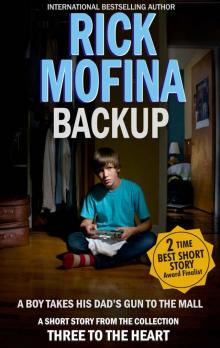 Backup
Backup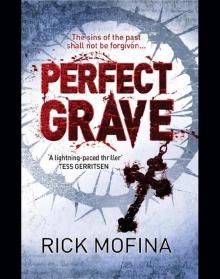 Perfect Grave
Perfect Grave Into the Dark
Into the Dark Whirlwind
Whirlwind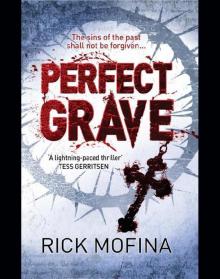 Perfect Grave jw-3
Perfect Grave jw-3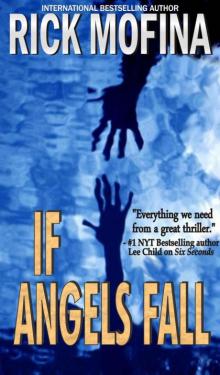 If Angels Fall (tom reed and walt sydowski)
If Angels Fall (tom reed and walt sydowski)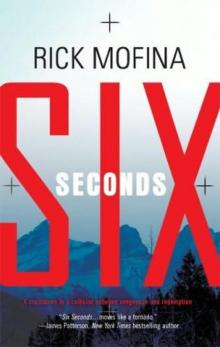 Six Seconds
Six Seconds If Angels Fall
If Angels Fall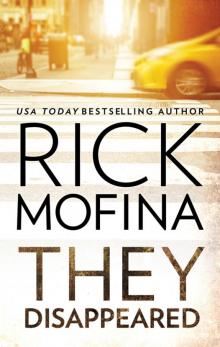 They Disappeared
They Disappeared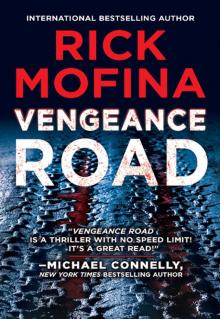 Vengeance Road
Vengeance Road Before Sunrise
Before Sunrise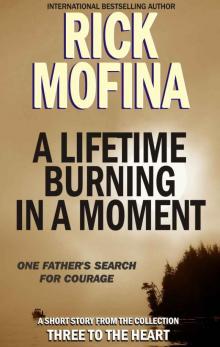 A Lifetime Burning in a Moment
A Lifetime Burning in a Moment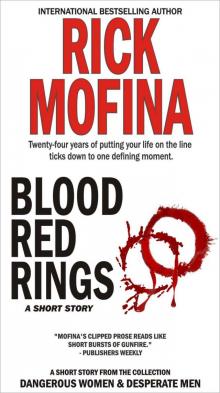 Blood Red Rings (Dangerous Women & Desperate Men)
Blood Red Rings (Dangerous Women & Desperate Men) As Long As We Both Shall Live (Dangerous Women & Desperate Men)
As Long As We Both Shall Live (Dangerous Women & Desperate Men)![[Tom Reed and Walt Sydowski 01.0] If Angels Fall Read online](http://i1.bookreadfree.com/i2/04/12/tom_reed_and_walt_sydowski_01_0_if_angels_fall_preview.jpg) [Tom Reed and Walt Sydowski 01.0] If Angels Fall
[Tom Reed and Walt Sydowski 01.0] If Angels Fall Cold Fear
Cold Fear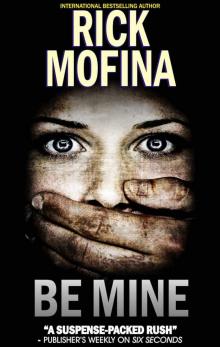 Be Mine
Be Mine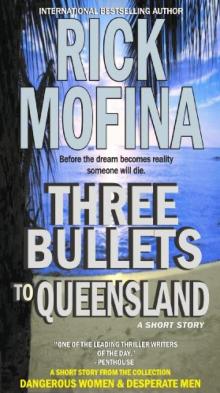 Three Bullets To Queensland
Three Bullets To Queensland